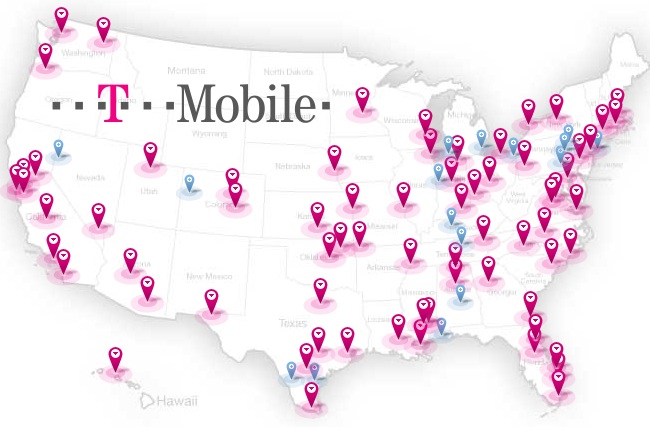
The AT&T acquisition of T-Mobile continues to move forward, but that’s not stopping the fourth-largest wireless carrier in the United States from beefing up its network while it can. The company’s 4G HSPA+ network has been beefed up, with a doubled peak download speed of up to 42 megabits per second, a press release reveals. The boosted performance is now up and running in 55 T-Mobile markets, including major cities like Chicago, Atlanta, San Francisco and Los Angeles.
Those who wish to take full advantage of the increased speeds right away can look to the T-Mobile Rocket 3.0 laptop stick. The ZTE-developed USB adapter, which goes on sale tomorrow (May 25), can hit faster speeds than previous T-Mobile 4G devices were able to. The Rocket will sell for $99.99 (after a $50 mail-in rebate) with a two-year contract commitment; postpaid monthly plans start at $29.99, and existing T-Mobile voice customers get a 20 percent discount. The Rocket can be purchased without a contract for $199.99.
Keep reading for the full list of markets that now support the newly boosted 4G speeds:
Albany, Ga.; Athens, Ga.; Atlanta, Ga.; Auburn, Ala.; Augusta, Ga.; Austin, Texas; Bentonville, Ark.; Boulder, Colo.; Chattanooga, Tenn.; Chicago, Ill.; Dallas, Texas; Deltona-Daytona Beach-Ormond Beach, Fla.; Denver, Colo.; Detroit, Mich.; Durham, N.C.; El Paso, Texas; Fort Collins, Colo.; Gainesville, Fla.; Gainesville, Ga.; Greeley, Colo.; Honolulu, Hawaii; Houston, Texas; Jacksonville, Fla.; Long Island, N.Y.; Los Angeles-Long Beach-Santa Ana, Calif.; Macon, Ga.; Mayaguez, Puerto Rico; Miami, Fla.; New Orleans, La.; Oklahoma City, Okla.; Olympia, Wash.; Omaha, Neb.; Oxnard-Thousand Oaks-Ventura, Calif.; Phoenix, Ariz.; Pittsburgh, Pa.; Ponce, Puerto Rico; Portland, Ore.; Salinas, Calif.; San Francisco-Oakland-Fremont, Calif.; San Jose-Sunnyvale-Santa Clara, Calif.; San Juan, Puerto Rico; Santa Cruz-Watsonville, Calif.; Santa Rosa-Petaluma, Calif.; Savannah, Ga.; Seattle, Wash.; Spokane, Wash.; Tampa, Fla.; Tulsa, Okla.; Valdosta, Ga.; Vallejo-Fairfield, Calif.; Warner Robins, Ga.; and Wichita, Kan.
Editors' Recommendations
- Have T-Mobile? Your 5G service is about to get much faster
- T-Mobile still has the fastest 5G, but its rivals are catching up
- The 5G speed race is over and T-Mobile has won
- What is 5G? Speeds, coverage, comparisons, and more
- Here’s another big reason why T-Mobile 5G dominates AT&T and Verizon

